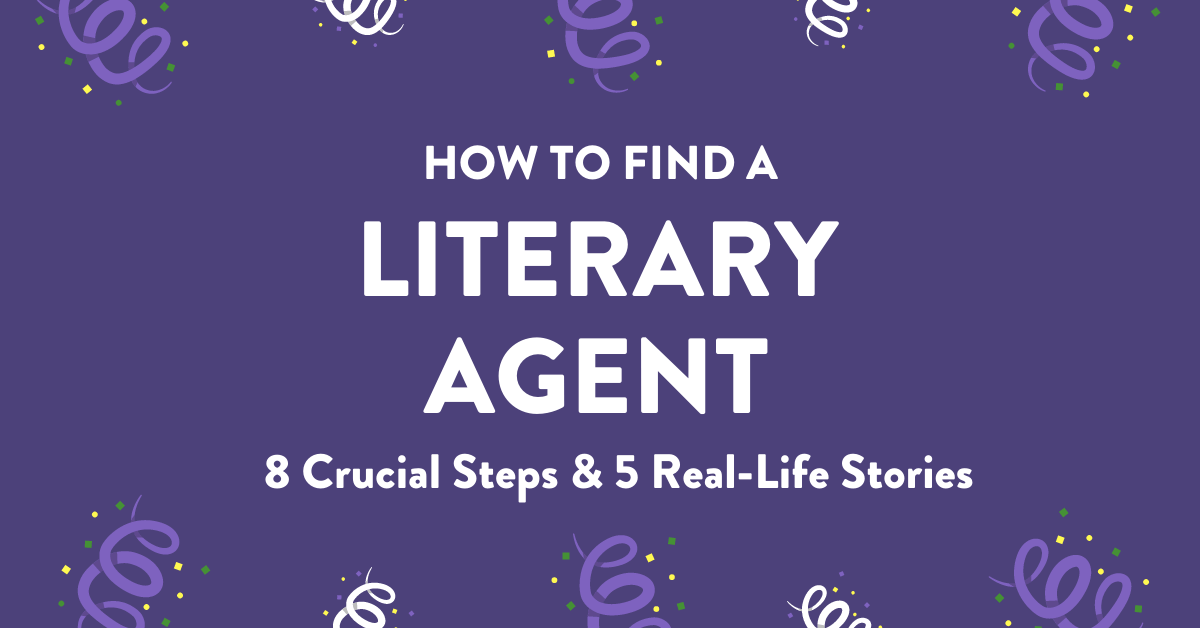 There are lots of articles with practical tips on how to find a literary agent.
There are lots of articles with practical tips on how to find a literary agent.
- Make sure your manuscript is great.
- 9 Tips on how to write a cover letter.
- Research an agent to find out who they represent.
You’ve probably heard most of those before. But what I’m going to give you is much more than a checklist.
I’m going to give you strategies for getting a literary agent, plus I’m going to give you real stories of how other writers have found agents. (If you want to skip to the stories, every real story is marked by a spaceship icon).
![]() 1. Don’t Look for Agents, Look for Agencies
1. Don’t Look for Agents, Look for Agencies
An agent is only as good as the people that support them. Most agents don’t work alone, they work in teams, and rely on the other members of their team to do things they can’t do.
For instance, an agent might use another agent’s specialty of foreign rights to have them sell their client’s book to Europe, and use another agent’s expertise to negotiate film rights.
 Of course your main contact will be your agent, and a good agency can’t rescue a bad agent. But just be aware of the support team your agent has, and factor that into your decision.
Of course your main contact will be your agent, and a good agency can’t rescue a bad agent. But just be aware of the support team your agent has, and factor that into your decision.
Pro Tip: Google “literary agency” rather than “literary agent” when trying to find someone to represent you.
![]() 2. Don’t Focus on “Getting” an Agent, Focus on “Selecting” an Agent
2. Don’t Focus on “Getting” an Agent, Focus on “Selecting” an Agent
Don’t focus on how to “get” a literary agent, as if they are animals in the wild you must stalk and take down.
Focus on how to “select” a literary agent, which means you are choosing between a whole host of agents and not letting them select you.
Be active at looking at what the agent has represented before. If you’re sending something to an agent, it’s always best if you’ve read at least one book they’ve represented. That way you can say in your cover letter, “I really like X author who you represent, and their book Y changed me in this way.”
![]() STORY: Let me tell you a story about how one of my friends got an agent. She started by taking 50 books off her bookshelf.
STORY: Let me tell you a story about how one of my friends got an agent. She started by taking 50 books off her bookshelf.
These weren’t the biggest books by the most famous authors. These were writers who were writing in her genre, and who had a book or two out, but they weren’t superstars. They were authors at the beginning of their career.
She looked at the acknowledgements at the end of each book, where every author without fail thanks their agent (usually first!) and came up with a list of 42 names of agents. (There were 8 repeats in the 50 books).
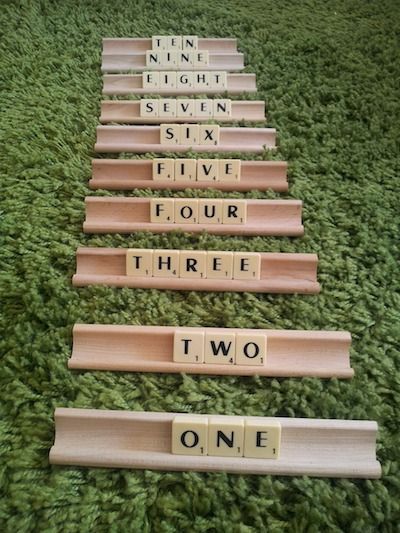 Out of those 42 names, she did research on each of the agents and came up with 33 agents that were part of an agency with resources (meaning they had foreign right departments and movie right departments, so she could sell all the ancillary rights after she sold her novel).
Out of those 42 names, she did research on each of the agents and came up with 33 agents that were part of an agency with resources (meaning they had foreign right departments and movie right departments, so she could sell all the ancillary rights after she sold her novel).
Out of those 33 agents, she looked at the books they’d represented and found she’d read an author represented by 15 of the agents.
She queried 15 of the agents, and 12 of them asked for more material.
Out of those 12 agents, 2 of them offered representation. She talked to several friends, had conversations with both agents, and went with the one she thought was best.
1. She got down to 1. That’s all you need. That’s what she got. That’s how the math works.
Start with a high number of agents and whittle them down. Be selective. Be choosy. Agents are choosy and you should be too.
![]() 3. You Want a Long-Term Agent, Not One Invested For a Single Book.
3. You Want a Long-Term Agent, Not One Invested For a Single Book.
That means you want to talk to them about not only this book, but about future book ideas. It means you want to ask them the most important question of all: how do they see your career unfolding?
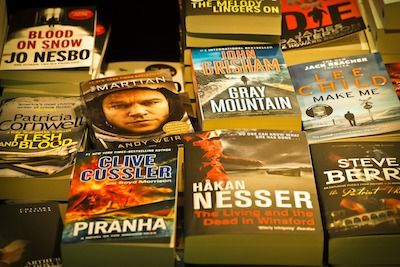 If they see you writing high-profile thrillers that make it to the NY Times bestsellers list, and you would prefer to write quiet literary dramas, that’s a warning sign.
If they see you writing high-profile thrillers that make it to the NY Times bestsellers list, and you would prefer to write quiet literary dramas, that’s a warning sign.
Make sure you share the same vision for your career.
Because the truth is that you’re going to have lots of ups and downs in your career, and you want your agent to hang with you during the down times. Otherwise, you’ll end up firing your agent.
Oh, you didn’t know authors had to fire agents? It happens all the time. The reverse happens too: agents fire their clients if they’re not writing enough or the right material.
If you’re not prepared for the possibility of a break up between you and your agent, you’re like the exceptionally naive husband or wife who gets married never having heard of a divorce.
Be prepared, people.
![]() STORY:
STORY:
One of my friends with an agent had to fire their agent after the first book.
- The agent kept sending the second book to publishers that my friend didn’t think was right for the manuscript.
- My friend wanted more personal attention than the agent was willing to give.
- The agent kept asking my friend to write something with a broader appeal, while my friend wanted to explore some idiosyncratic novel ideas, more arthouse than commercial.
But guess what? It turned out all right, because after that first agent, my friend got an agent and has stuck with them through 2 more books. Sometimes it takes a few mistakes to find the right agent.
![]() 4. You do not want an agent. You want the right agent.
4. You do not want an agent. You want the right agent.
There are lots of agents out there that you don’t want, and that won’t be a right fit for you or your book or your career.
Your career will suffer if you have an “almost-right” agent.
![]() STORY:
STORY:
For instance, Salman Rushdie had two huge offers from publishers when he sold The Satanic Verses. His agent told him to go with the publisher that offered less money. Salman Rushdie didn’t understand why (and you probably wouldn’t either — most of us would choose the offer with the most money, right?), but he talked to his agent and his agent seemed convinced the publisher offering less money was the right publisher.
Well, once The Satanic Verses got banned in multiple Muslim countries and a fatwa came down that would reward any muslim that assassinated Rushdie, his publisher got death threats, bomb threats and enormous political pressure to drop his book. Guess what? They didn’t.
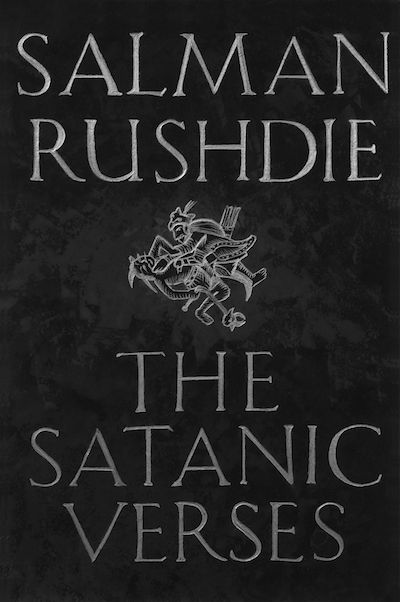
But the other publisher, the publisher he didn’t go with, didn’t even put out a statement supporting him. The other publisher was cowardly, and would have caved into pressure and dropped his book immediately, while the publisher he chose was brave.
His agent knew that the book was going to be controversial, knew that the publisher who offered less money was more stalwart, and guided his client to the best publisher.
That’s why you want an agent you can trust.
![]() 5. Make Friends With Writers Who Have Agents
5. Make Friends With Writers Who Have Agents
This is how many writers get agents:
- They have a friend who has an agent.
- The friend loves their writing, and recommends them to the agent.
- The agent trusts their client, and takes on their friend.
This is how most non-agented writers think you get an agent:
- They write a stunning manuscript and submit to 10 agents.
- Several of them want to represent.
- The writer picks the best one.
The first sequence happens a lot more than most unagented writers realize. You often get an agent through a personal recommendation.
![]() STORY:
STORY:
For instance, one of my friends was at the Breadloaf Conference two years ago and spent several late nights drinking the night away with a young author who had just published his first book. After drinking together for several nights, my friend, drunk out of his mind, reeled off his pitch for his recently completed novel.
 The young author, also drunk, said he loved that concept, that it sounded right up his alley, and that my friend should send him his novel.
The young author, also drunk, said he loved that concept, that it sounded right up his alley, and that my friend should send him his novel.
When they were not so drunk the next morning, my friend sent him the novel. The young author loved it, and sent it to his agent. And the agent loved it and signed up my friend.
And that was how my friend got an agent.
Don’t ever underestimate friendship with other writers. That’s how everything gets accomplished in the writing world.
![]() 6. It All Starts With A Handshake
6. It All Starts With A Handshake
Here’s a good rule for sending to agents. Out of all the agents you send to, 70% of them you should have met personally face to face. At some kind of conference, workshop, or some kind of flash pitch session.
Then, at the beginning of each cover letter, tell the agent: “I met you at X conference/workshop.” It makes all the difference in the world.
Of course it’s better if they asked to see your novel, but even if they didn’t, it’ll still get your foot in the door.
![]() STORY:
STORY:
About 4 years ago I did an experiment.
I sent my novel to two batches of agents. Same query letter, same first 50 pages, same pitch.
 One was a control group of 8 agents. I had never met any of them. I had found them online at agencies that had good reputations, through the Agent Issue at Poets & Writers, and found them thanked by the author at the back of books I liked.
One was a control group of 8 agents. I had never met any of them. I had found them online at agencies that had good reputations, through the Agent Issue at Poets & Writers, and found them thanked by the author at the back of books I liked.
The second group was 8 agents I had met at Squaw Valley Writers Conference. I had listened to them speak, workshopped with some of them, shook their hands, and looked them in their face. I had only pitched a few of them, but even if we hadn’t met one-on-one, we had a connection through the conference.
Out of the Control group, only 2 out of the 8 agents replied to reject me. The others never responded. None of the 8 asked to see more of my manuscript. If I hadn’t known better, I would have thought it was my cover letter or my novel which was crap. But the truth was that cold queries are never a good strategy.
Out of the Squaw Valley agents, all 8 of the 8 I queried got back to me. 6 of the 8 asked to see more of my manuscript. And although at that time the novel wasn’t ready, and so I didn’t get representation, the truth was that I got a fair shake. They read it and said why they weren’t accepting it.
The difference? At the beginning of the cover letter to the agents I met at Squaw Valley, I simply said, “I met you at Squaw Valley.”
![]() 7. Make Sure Your Agent is Excited About Your Work
7. Make Sure Your Agent is Excited About Your Work
Being an agent is a business. As a business, they are trying to earn money. They are trying to take books that they know they can sell, sell quickly or sell for a lot of money.
 For instance, read this great essay at Bookfox by Jennifer Carr on comparing agents to Realtors. If you think of literary agents as Realtors, it will help you a great deal in actually finding an agent.
For instance, read this great essay at Bookfox by Jennifer Carr on comparing agents to Realtors. If you think of literary agents as Realtors, it will help you a great deal in actually finding an agent.
But the point is that some agents take on books not because they like the book, but because they just think they can turn a quick buck.
As an author who poured their heart and soul into your book, you probably don’t want an agent that pitches publishers with some lackluster version of “this book is not bad.” You want an agent that thinks your novel is great — not objectively, but personally. They enjoyed your book. They found it fun.
That’s the agent who will truly push you and your career. That’s the agent who will make the best sale.
![]() 8. Trust Your Literary Agent Financially
8. Trust Your Literary Agent Financially
This is a relationship built on money.
They are trying to make money, and you are trying to make money.
 If you can’t trust your literary agent’s judgement when it comes to negotiating royalties, you really shouldn’t be with them. Because they are your financial negotiator with the publisher, and you have to be able to trust them.
If you can’t trust your literary agent’s judgement when it comes to negotiating royalties, you really shouldn’t be with them. Because they are your financial negotiator with the publisher, and you have to be able to trust them.
But it’s more than just the book sale. You have to trust them when they point you to a good accountant to help you with taxes, and their recommendation for how to sell your book’s rights in Germany and France.
You have to trust them when they tell you to take a smaller advance because the smaller publisher will do more marketing (and it’s really hard to trust someone when they’re telling you to take $10,000 or $20,000 less!).
You have to trust them when there are long periods when you don’t communicate much, and you have to trust them that they’re working behind the scenes to help you and your book.
Want to learn more about literary agents? Check out these other excellent articles on Bookfox about literary agents:
41 Best Literary Agents representing YA, according to the number of books & time they’ve spent on the New York Times bestseller list in the last year.
14 New Literary Agents seeking clients. These are all agents who are actively building their list, so they won’t — like so many agents — turn you down simply because their plate is full with other clients.
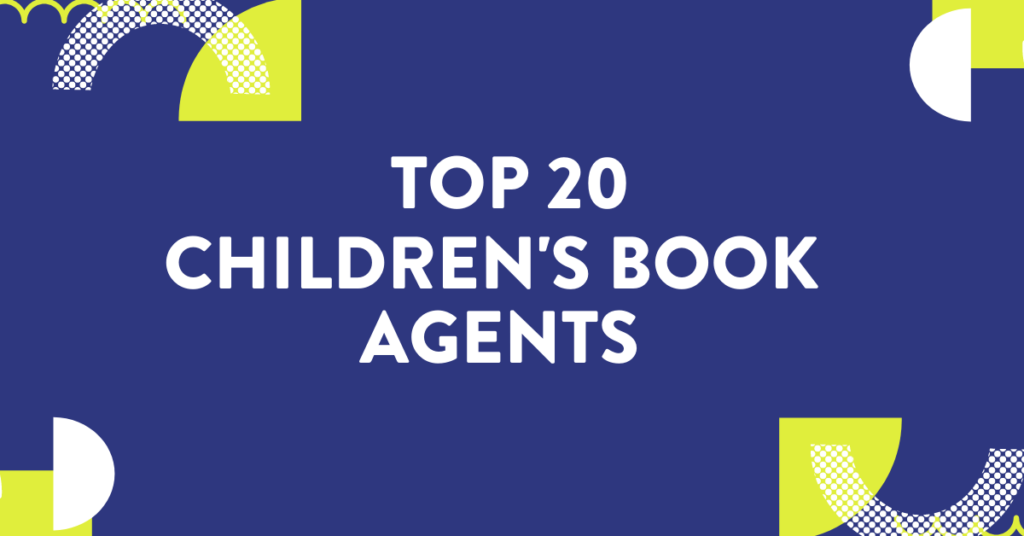
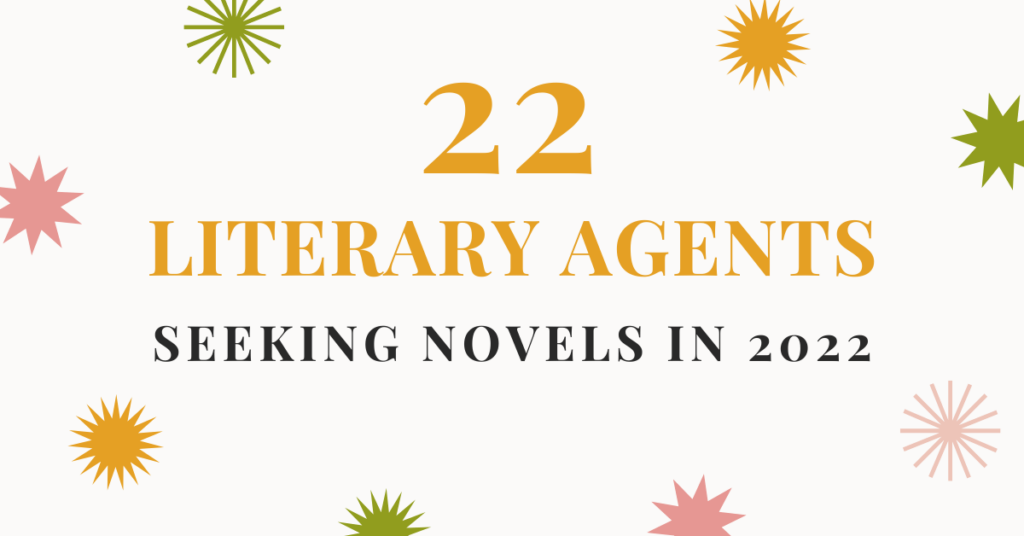

39 comments
THANK YOU JOHN
Excellent information – exactly what I needed
You’re welcome! Glad it was helpful.
This is very helpful. Question though, if an agent asked for my full manuscript two months ago and I haven’t heard from her, should I try to contact her, give her more time or just accept that she is very busy and probably didn’t like it?
Contact her, and while you’re waiting to hear back, submit to 10 other agents.
This is a wonderful article! The difference in sending your manuscript in cold vs the agents you met in person is fascinating. Can’t wait to finish editing my book so I can use these tips!
I really like all your lists and advice. You’re a big help in the writing world that’s so full of rabbit holes. Thanks.
I have heard that agents don’t like to represent books someone else had already seen. Is that possible? How can you choose an agent if you don’t show the manuscript to some agents? And, is it possible to submit the book to Amazon and then look for an agent? Thanks.
“Seen” means sent to multiple publishers, not sent to agents.
You can’t self-publish and then look for an agent for that book, no, because publishers don’t want it.
This was extremely helpful. Thank you. A couple more questions: Should a new writer expect to get an advance on a manuscript? What is the average range for agents for new authors?
Yes, you should get an advance.
There is no average range. 1000 for super small publisher, 15 – 30 grand for big publisher, 70k – 100k or much more if you get into a bidding war.
Great Article! Thanks for the tips! I am at the very beginning of finding my Perfect Agent and Agency, and as you say not the other way around.
Thank you, John, for such useful information, well researched and documented.
Anne, beginning my agent search
Wow!
Thank you, BookFox, for pumping my brakes at such an early stage in my career. This article was very helpful! I’m interested in having my work edited at this time. Is there a genre you wouldn’t edit. I have written a “Fictional Christian/Powerful Tool” and a second book/part 2 proceeding the first. My work is the survival of real cases of my life, marriage and family at the most-intense level. I’ve had publishing companies such as ” Universal publishing, and CFP” reach out about my work. God delays all things that He wants handle with TLC and Trust as you respectively make a point this article! That’s what I’m looking for from start to finish and long term. I’m going to start on the assigned home work above. My question for you is: Will you be willing to edit my work – it’s intense as my survival wasn’t easy and still doesn’t come light as tomorrow isn’t promise to no one. I hope you’re willing….
Jennifer AKA,
JB. Daughter of the King
Thank you for clearing up some of my questions. I have a children’s picture book manuscript that I am planning to send to publishers who accept unsolicited submissions. Is there any point contacting an agent with only one piece of work or should I try and build up a body of work first?
Thank you for your help.
I would recommend sending this first book and seeing whether you get any feedback. Simultaneously, keeping producing more material so when that gets rejected, you have a new piece to send.
Thank you so much BOOKFOX. Your write-ups have answered many questions I had. I am a published author of two e-books seeking to have my books published commercially [printing, marketing, distribution etc], and from the information you supplied, I am now more confident that what iI really need is a literary agent who can work with me on the long term [I intend to continue writing Christian Lifestyle books]. Thank you. I will definitely take your counsel.
I’m having problems finding agencies that deal with business books. The few I’ve found mentioning business have it way down a list of too many things. Also, as searches return so many in too broad a swath, other than “literary agency business non-fiction”, are there any better ways to search?
I have a draft that I know is too short and I don’t have the graphics skills to self-published, so I’m looking for agents because they have the expertise to help me on the rest of the way through the journey. Any tips on agents who focus on business?
Look at mswishlist and find agents who are looking for business books.
This was the absolute best information I’ve read on finding the right literary agent – thank you!! I have to say I’m a bit nauseated now though..I wrote and illustrated a picture book about mermaids… and self published it because I had no idea how I was supposed to show literary agents or publishers my vision! It’s a gorgeously illustrated book and I thought if I self published, I could give them copies, read the book, see the amazing illustrations then sign me. Now reading through comments I see that this is not the case?! Do you have any recommendations as to what I should do? This is literally the biggest and most expensive mistake of my life if I don’t figure something out…I poured hundreds of hours illustrating, so much money on the supplies (it’s mixed media), and several thousand to print and distribute! I’m completely freaked out!!
Well, it’s not a failure. Your book is out there in the world, and people can buy and read it. And plus, with that experience, you can write another book. Traditional publishing isn’t the only way to succeed as a writer — you should feel proud of what you’ve done!
I CALL BULL. All these “my friend” stories are just scenarios the writer devised to illustrate her point. I doubt any of them are true. What are the odds that every advice she provides just happens to have a perfect real life example that occurred to someone she knew? And since these stories are fiction, they do nothing to support her points. I’m not saying her points aren’t valid (many of them are, in a very broad and obvious way), but she loses all credibility with the lies. Oh, and as for the Salman Rushdie example… why would a publishing house that did NOT end up publishing THE SATANIC VERSES be cowardly for not publicly defending the book? They’re not the publisher. It’s not their duty to defend every single piece of literature. Also, is the writer of this blog actually saying that Rushdie’s agent had some sort of amazing foresight? We have no idea why the agent advised Rushdie to go with the publishing house that offered less. To simply say the agent was right because the publisher they went with defended a HIGHLY PROFITABLE BOOK, especially following the public scandal which shot the book to international attention, is naive at best. We have no idea if the other publisher, had they ended up publishing the book, would also have kept the book on the shelves. Just absurd.
When you’ve been in the industry as long as I have, you hear a lot of stories about agents — because every writer you know has one. So the stories are true.
And you’re misunderstanding the Salman Rushdie story. The other publisher would definitely have dropped him, which you can see if you read Salman’s Rushdie’s interviews and his book “Joseph Anton” about his experience.
And yes, the agent had incredible knowledge to steer him to the right publisher — not just a publisher who would give him money, but to promote and to defend his book. That’s actually what you pay agents for — that type of insight.
The point that you should learn is that there are more considerations at play than merely advance money when considering a publisher.
When unable to attend these writer’s conferences you mention is there any other way to get attention from an agency or agent?
Yes, publish a story in a big literary journal or magazine about the topic of your book (or an excerpt from your book.
Many thanks. This information arrived at the right time. I’m a multigenre writer and your words affirm that I need an agent who will understand and support me and that I should settle for nothing less.
Amazing article! I’m Jewish and Chilean. Do you have any advice for international non English writers?
There are agents in every country and for every language — try to find ones representing what you write.
I had an agent who had recently joined Gernert respond immediately to a query and request a full. She emailed that she had read the first few pages and couldn’t wait to dig into it. I waited two months, then emailed her if she had read it. She hadn’t and promised to read soon and get back to me. Ten months later, I queried another agent who read the ms immediately, arranged a phone conference the following day, where he mapped out where he’d submit the ms. I signed with him the following day. I think some of these agents are just badly organized and naive, thinking they’re not burning bridges with future talent by failing to communicate a simple “no, not for me” or “yes, I’m interested but—” or “I’ll take it!”
And, G. Ray, I can give you agent names, and this story isn’t about a friend of a friend of an acquaintance. This crap happened to me this year.
Great information for writers looking to get published, thank you. I have two books that have had interest from several agents from query letters and a couple of full reads, however I haven’t found someone in love with my books. I have had people I know and other writers read my manuscripts and I’ve gotten good to great feedback. At this point I am puzzled why I have come close but not made the full leap to being published and its been years now. I don’t know whether to re-write my two existing novels or work on the third. Any suggestions considering I have had some interest in the past? I really want to move on to the next step but I am really not sure what to do next. Life is short I feel like its passing me by.
The best guide and help material I have read in a very long time as far as I can remember. Great effort!
What wonderful advice. Even better than in Writers’ and Artists’ Yearbook. I seem to have done most of these instinctively and am waiting for just one of two agents to come back to me. If they don’t, I shall come back to Bookfox rapidly ! I want quality, sensitive publishing to create a classic. Not cheapo or lazy solutions.
All this advice is great! I hope it will help me get published one day.
This is fantastic information! I always read articles where they say, find an agent. But how? Now I know so much more! Thank you! Your emails have been so helpful to me.
Thank you for this article, it makes so much sense and will be of great help when I have completed rewriting a novella I was writing. I have had similar experiences that you mentioned on cold queries with a screenplay I wrote and with a TV series as well. The novella is from the screenplay I wrote which has had numerous rewrites so far, and I’m hoping that I can get the novella published. Then maybe, if it’s popular, I may be able to find an investor for my film. Trouble is, in Australia, when I was looking for an agent years ago, there were so few here and I was informed that they wouldn’t take me on until I had a commercially successful film. The same goes for the local Film Corporation in SA. Bit of a catch 22 situation.
This is such helpful guidance! The only point I’m struggling with is the part saying to query agents you’ve met in person. With all the conferences and events shut down due to the virus, do you have any other suggestions for ways to “meet” agents prior to querying?
Sorry, it’s just a weird time to try to get out and meet agents. But this too shall pass…
Thank you so much for the pointers! I have met a few agents and am now in the process of selecting one. It helps when you think YOU are interviewing the agent for a job instead of them reading YOUR book to give you a job.
Thank you for this wonderful resource. I am not an aspiring author but part of a startup exploring problems in publishing industry that can be solved by technology. Do you have any input for me?
I find the tone of your emails and blog entries approachable and helpful. So many “experts” lecture on the right way to do everything. You acknowledge that there is no one right way and offer options and real-life anecdotes to make them believable. I self-published my first novel and am currently seeking representation for my second – both Contemporary Women’s Fiction/clean romance. Thanks for the suggestions. Though I have heard them elsewhere, it’s always good to hear them again.